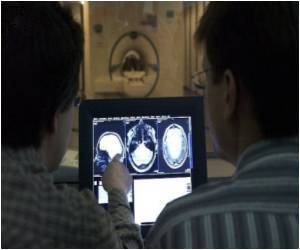While many different combinations of genetic traits can cause autism, an analysis of data from autopsied human brains reveals that brains affected by autism share a pattern of ramped-up immune responses.

The causes of autism, also known as autistic spectrum disorder, remain largely unknown and are a frequent research topic for geneticists and neuroscientists. But Arking had noticed that for autism, studies of whether and how much genes were being used -- known as gene expression -- had thus far involved too little data to draw many useful conclusions. That's because unlike a genetic test, which can be done using nearly any cells in the body, gene expression testing has to be performed on the specific tissue of interest -- in this case, brains that could only be obtained through autopsies.
To combat this problem, Arking and his colleagues analyzed gene expression in samples from two different tissue banks, comparing gene expression in people with autism to that in controls without the condition. All told, they analyzed data from 104 brain samples from 72 individuals -- the largest data set so far for a study of gene expression in autism.
Previous studies had identified autism-associated abnormalities in cells that support neurons in the brain and spinal cord. In this study, Arking says, the research team was able to narrow in on a specific type of support cell known as a microglial cell, which polices the brain for pathogens and other threats. In the autism brains, the microglia appeared to be perpetually activated, with their genes for inflammation responses turned on. "This type of inflammation is not well understood, but it highlights the lack of current understanding about how innate immunity controls neural circuits," says Andrew West, Ph.D., an associate professor of neurology at the University of Alabama at Birmingham who was involved in the study.
Arking notes that, given the known genetic contributors to autism, inflammation is unlikely to be its root cause. Rather, he says, "This is a downstream consequence of upstream gene mutation." The next step, he says, would be to find out whether treating the inflammation could ameliorate symptoms of autism.
Source-Eurekalert















